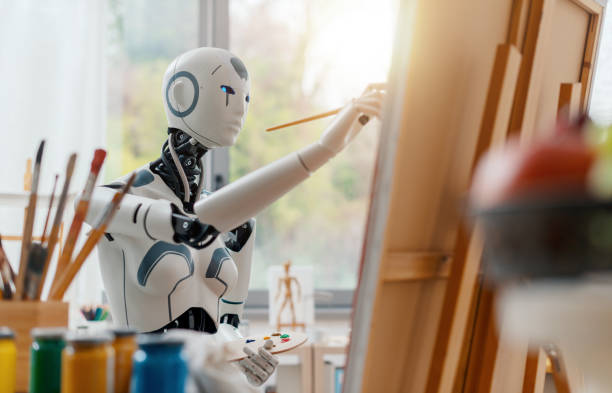Artificial intelligence (AI) is rewriting the rules of creativity. From AI-generated artwork to machine-written novels, we’re witnessing a new era where technology plays a major role in content creation. But who actually owns these AI-generated works? Is it the human who clicked “generate,” the developer of the AI, or no one at all?
The legal landscape around AI and copyright is as clear as a Sydney foggy morning. Businesses, creatives, and legal professionals are grappling with evolving laws and the risks of AI-driven content. Whether you’re using AI for marketing, software, or art, understanding copyright implications is crucial.
This is where Actuate IP can help—ensuring your business stays protected in this rapidly changing space. Let’s break down the key issues, risks, and solutions.
Contents
Key Takeaways
- AI-generated content does not automatically qualify for copyright protection in Australia.
- Copyright ownership depends on human input and originality.
- AI can inadvertently infringe on existing copyrights, creating legal risks.
- Australia’s copyright laws are evolving but still lack clear AI-specific regulations.
- Seeking expert legal advice can help businesses navigate AI copyright complexities.
Who Owns AI-Generated Content?
If an AI writes a poem about the Sydney Opera House, who owns the rights? The AI? The programmer? The user? The Opera House itself (just for being fabulous)?
Under current Australian copyright law, only humans can be recognised as authors. AI, being a machine, cannot hold copyright. However, this leaves a legal grey area—if a person uses an AI tool to generate content, is their involvement enough to claim ownership?
- If a human provides significant creative input, they may be considered the copyright owner.
- If an AI generated content with minimal human intervention, it may not qualify for copyright at all.
This lack of clarity has led to global debates and court cases, with some jurisdictions exploring whether AI-generated works should have limited or shared copyright protections. For now, in Australia, AI-generated works may be unprotected—meaning anyone can copy and use them without permission.
AI and Copyright Infringement Risks
AI doesn’t create content out of thin air—it learns from existing data, much of which is copyrighted. This can lead to serious legal risks for businesses using AI-generated content.
Common AI copyright pitfalls:
- Training on copyrighted data: Many AI models are trained on books, music, and artwork without permission.
- Unintentional replication: AI-generated content may closely resemble copyrighted works.
- Derivative works: AI might create content that is inspired by existing copyrighted material, but where is the legal line?
“AI doesn’t ‘steal’ in the traditional sense, but it sure knows how to ‘borrow’ creatively.”
Businesses using AI-generated content—whether for advertising, product designs, or creative works—must verify originality and avoid potential copyright infringement claims.
Best Practices for Businesses Using AI-Generated Content
If you’re leveraging AI for business content, here are five essential steps to reduce legal risks:
- Ensure human input – The more you contribute creatively, the stronger your copyright claim.
- Check the AI tool’s licensing terms – Some AI platforms restrict commercial use of generated content.
- Verify originality – Run AI-generated content through plagiarism and copyright-checking tools.
- Avoid copyrighted training data – Be mindful of where your AI is sourcing its knowledge.
- Consult an IP lawyer – AI copyright laws are evolving, and expert guidance can protect your business.
Taking these precautions can help you use AI without landing in a copyright dispute.
How Australia’s Copyright Laws Are Evolving
Australia has yet to introduce AI-specific copyright regulations. However, legal discussions are underway to address these challenges.
Key legal developments:
- The Australian Copyright Act (1968) does not currently recognise AI as a creator.
- The government is reviewing copyright policies to address AI-related concerns.
- Legal experts are exploring whether AI-generated content should receive partial protection.
While there is no immediate change in Australian copyright laws, businesses should stay informed and prepare for potential reforms.
When Should You Seek Legal Advice?
With AI-generated content becoming mainstream, legal risks are increasing. If you’re unsure about the copyright implications of AI in your business, seeking expert legal advice is essential.
You should consult an IP lawyer if:
- You use AI-generated content for commercial purposes.
- You’re facing a potential copyright dispute over AI-created material.
- You want to protect AI-assisted innovations within your business.
- You need guidance on upcoming changes to copyright law.
With the legal landscape still evolving, Actuate IP can.




